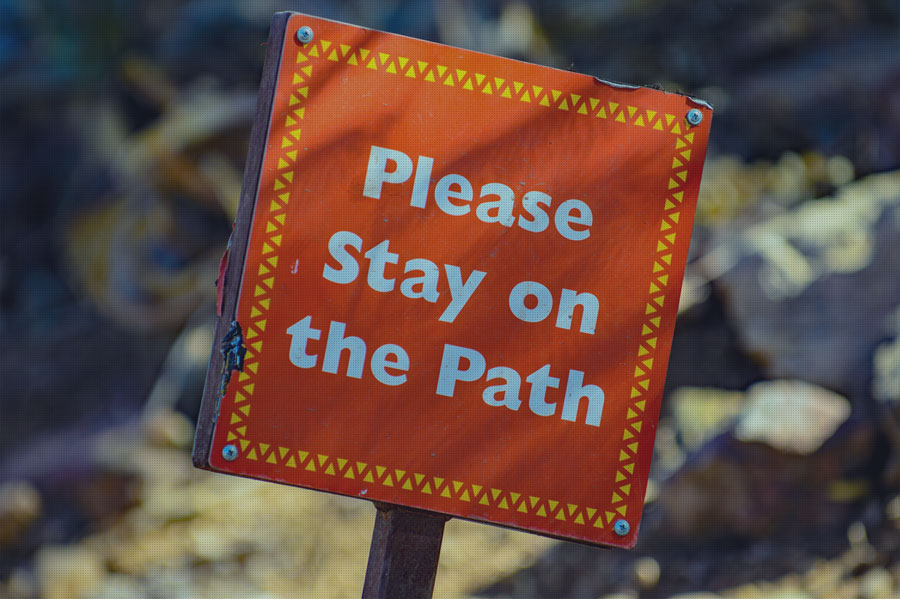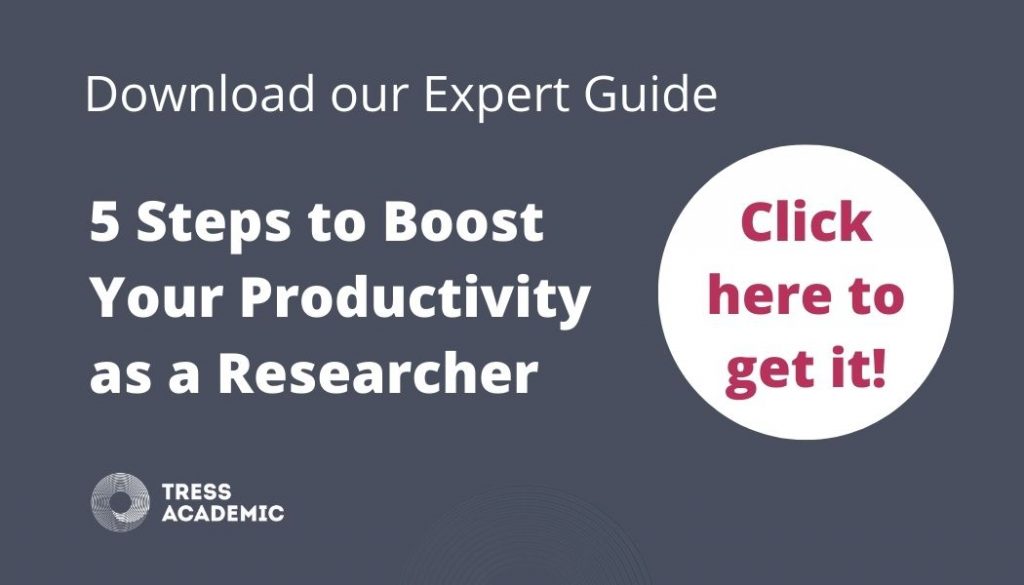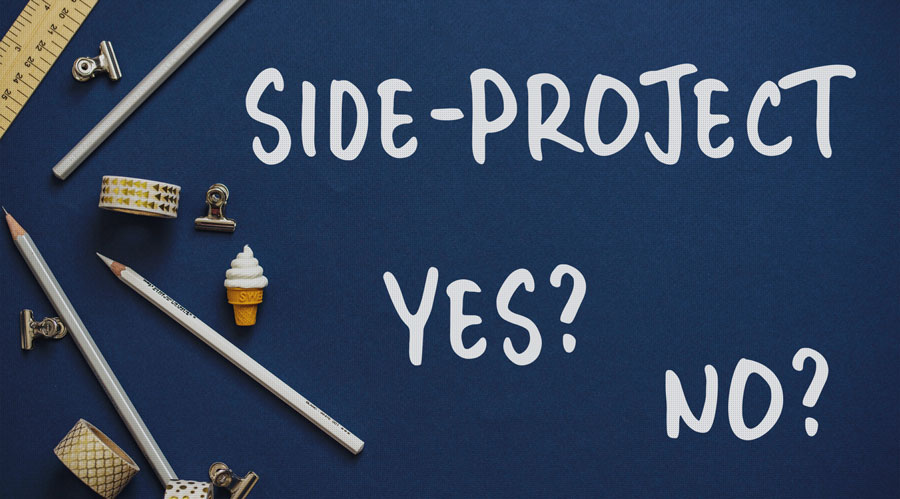Have you been asked to join an activity outside the PhD? Not sure if you should say YES or NO? Agonising over it for a while already? Let us help you with the decision: We’ll give you a list of points to consider so you’ll know clearly if it’s better to politely decline a side-project or if it’s worth saying “yes, great, let’s do it”!
Most of us have you been tempted to say YES to additional activities besides the PhD. In our course “Completing your PhD successfully on time” we are often approached for advice with one of the following questions:
“A colleague asked me if I would like to contribute to a paper that he’s working on right now. I feel so honoured – but the work is a little bit outside my PhD.”
“Someone asked me to deliver a few lectures for their students. Should I accept?”
“I was asked to organise this years’ PhD school event, but now I realise how much work that is.”
“I was offered the chance to join another research project. But I’m not sure it’ll add much to my PhD.”
Does this sound familiar to you? You are working on your PhD project, and there’s a clear plan for what will be included – and what not. But while working on your PhD project, you are asked to do some work that is somehow related to your PhD, but outside of what you planned as your main line of work. These can be smaller activities, that will only take up time temporarily, or bigger initiatives or projects that would be a big commitment on your side. But, just so you know what we are talking about, we call these “side-projects”, because they exist next to your main project – which is of course to get the PhD degree!
You’ll be asked sooner or later
As a PhD student, you are working in an active research environment – and that’s fantastic: There are visiting scholars and international collaborators who get to know you and your work. You attend conferences, summer schools, and events for your graduate programme and you may have already authored papers. So it is only natural that sooner or later you are approached by others, who find your work valuable or intriguing and want you to join in, cooperate or contribute to some of their work or initiatives. Here are some common requests:
- you are asked to co-author another paper (not in the planning for your PhD)
- asked to join a team seeking funding for a future collaboration
- requested to contribute to an existing research activity
- asked to supervise MSc students or asked to teach (apart from what may already have been included in your PhD programme)
- asked to organise a conference/scientific event hosted by your institute
- invited for a visit/temporary stay at another research facility or lab
Think twice before deciding
Yes, in principle it’s great that your work is getting attention, and as a PhD student you will feel flattered and proud! You may think: “Finally someone who recognises how important my work is.” or “This is so cool – I can definitely make an important contribution here.” Maybe this is the first time that your professional advice or contribution seems to be valued. Or, you may be delighted that someone recognises your organisational talent! Believe us, we’ve been in that very situation ourselves. So, we know you might be inclined to utter a spontaneous “YES – bring it on!” but we suggest you instead to pause, think, and then decide.
Focus on your PhD project
Side-projects next to your main PhD work can often be tricky and make you lose focus on your most important work. But keeping focus during your PhD is one of the main factors to completing your PhD study successfully. This is why in our upcoming online course (door’s are not open yet!) we give very detailed instructions how to improve the focus on your PhD, so you manage to work on the most relevant tasks. You can also find help keeping your focus on your PhD in our SMART ACADEMICS blog post no. 2: So you want to finish your PhD on time? and our Free expert guide ‘5 reasons why PhD students delay & how-to avoid’.
Side-projects can cause difficulties with your workload and prioritisation, be less beneficial than anticipated, may not contribute to what counts for your PhD, and eventually lead to a delay in submitting your PhD dissertation. So it’s good if you think twice before spontaneously committing yourself and then regretting it later on.

We know from our own experience that it can be rather difficult to find out if a side-project is worth it or not and you may be dragging your feet about the decision for a while. That’s why we want to give you some candid advice with this blog post. How can you tell if a side-project is worth it, and when is it not? Get our free fact-sheet “Join a side-project? YES or NO” listing 9 reasons when to say YES and when to say NO. So the next time you’re asked to join one, you’ll find it much easier to take the right decision.
Side-project: what to consider in general?
1. Time schedule for your PhD
The timeline for a PhD is usually very tight already. And any decision to take on extra work therefore has to be considered very carefully. Make an informed guess of how much time you’ll have to invest for this side-project. E.g. if you’re asked whether you’d like to organise a grad-school event, then ask others who did it before you to find out how much time they invested. Look carefully at your project plan and timetable for your PhD and see if you can accommodate the extra demand on your time. Each new time investment has to be weighed against the work you would otherwise be doing. Any benefits have to outweigh the potential disadvantages you’ll get from taking on the project. If it’s a matter of investing a few extra days, you’ll probably fit it in. But if the side-project is a bigger commitment, you’ll have to think about whether it will eventually delay your main project and the hand-in date for your PhD dissertation. Is it worth handing in later than planned?
2. Supervisors’ opinion
It is good to check in and discuss any request that comes your way with your supervisors (or advisors) first. Do they support you? If yes, you can still decide if the extra project makes sense for you, but at least you know that it is ok for them. Or, are your supervisors not-so-happy with the interference? Are they afraid that someone is taking advantage of you or distracting you from your PhD and any agreements they may have with you?
It also happens of course that the request is coming from one of your advisors. In that case, we still suggest to discuss with your supervisor how much time the side-project will cost you, and the potential conflicts of interest with your main project. Supervisors also occasionally have spontaneous ideas, which – after careful thought – may be better kept for another time …! As your advisors may not always have your hand-in date or end of contract in mind, you should make sure they are aware of any negative consequences that another activity will have for you.
3. Contractual situation or funding
As an academic you often have a high degree of freedom to decide how your own time is used. But for bigger side-projects and time commitments, you’ll have to check if this is in line with your funding or contractual situation. If you have a scholarship, you’re likely funded on the basis of promised outputs that you have to deliver in the end. If you are employed, there may be a clear job description that has to match what you do. So before you commit yourself to any new side-project, make sure it is in line with what you are paid for.
4. How big is the added value?
As a bottom line, any additional work you take on during your PhD should have a very clear added value! It must be beneficial for you in one or the other way – otherwise, why would you want to get involved? Making that added value explicit to yourself can be a big help in the decision-making process. Sit down and list the benefits you see in the side-project that you’ve been asked you join. You can say yes to ‘side-projects’ if there are markable benefits for:
- your PhD project
- your academic or non-academic career afterwards
- you personally

When should you join, and when decline?
Now with those general thoughts in mind, download and go through our ‘free fact-sheet “Join a side-project? YES or NO”. This will help you further in the decision-making process by listing crucial reasons why you might say NO or YES. And it has space to fill in your personal reasons as well. As you’ll see, a spontaneous feeling of ‘I should agree to that!’ is sometimes just glossing over some deeper issues you’re having with your PhD.
Conclusion
Did you realise the many aspects to consider before saying YES to a project or activity alongside your PhD? We so much want you to succeed in academia, and that is the reason that we tell you that just saying YES to everything that comes your way is not a good strategy. Instead, be careful and critical about the opportunities that come up. Then you can seize the moment when an irresistible chance comes – the one that will really pay off!
And for the many moments when you decide to say NO – let us remind you that your life is not over after your PhD graduation. You don’t have to pack everything into your PhD time. Why not keep some nice projects or activities for your ‘life-after’?
Related resources:
- FACT-SHEET: Join a side-project? YES or NO
- Smart Academics Blog #113: Identify your top PhD priority to boost your progress
- Smart Academics Blog #82: The top 7 time-wasters of researchers
- Smart Academics Blog #2: So you want to finish your PhD on time?
- Expert guide ‘5 reasons why PhD students delay & how-to avoid’
- TRESS ACADEMIC course: Completing your PhD successfully on time
More information:
Do you want to complete your PhD successfully?
If so, please sign up to receive our free guides.
© 2019 Tress Academic
Photographs by Joanna Kosinska, Mark Duffel at unsplash.com
#PhDProject, #PhDStudies, #PhDCompletion, #TimeManagement, #Focus
